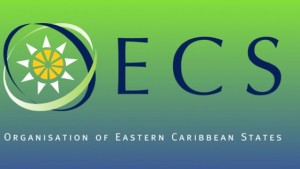 BASSETERRE, St Kitts — Effective December 2018, Organisation of Eastern Caribbean States (OECS) citizens will no longer be able to submit Canadian visa applications online and the process will then require applicants to present themselves physically at the visa issuing agency in Trinidad.
BASSETERRE, St Kitts — Effective December 2018, Organisation of Eastern Caribbean States (OECS) citizens will no longer be able to submit Canadian visa applications online and the process will then require applicants to present themselves physically at the visa issuing agency in Trinidad.
As part of its increased security processes, Canada now requires everyone from anywhere in the world that needs a visa to provide biometric data, including fingerprints and photographs information. Therefore, visa applicants from all OECS countries will have to travel to Trinidad physically to provide the data from December. For many other non-Caribbean countries, the requirement comes into effect on July 1.
St Kitts and Nevis minister of foreign affairs, and premier of Nevis, Mark Brantley, highlighted the additional costs that will be involved.
“The cost of travel to Trinidad is extremely high and we feel that is a matter that will be unhelpful if certainly taken to its logical conclusion. It would really ensure that many of will never be able to even afford to apply for the visa, far less to get a visa,” he said on Monday, emphasizing that the new requirements would effectively be pricing the visa outside the reach of most nationals.
“The example that I use is, if you are a family of four the last I saw, a ticket to Trinidad round trip from here is about US $800. So, if you are paying that money for a family of four you’re talking about say $3,000 – using a round number – for four people to go to Trinidad with no guarantee that you are going to get the visa. Then when you go down there now you still have to spend for hotel and transportation and meals. Then if you are lucky and you come back you now have to think about money to go to Toronto. Our argument is that it is really pricing the visa out of the reach of most of us and that would mean that effectively Canada is taken off the table insofar as people from St Kitts and Nevis are concerned,” he said.
According to Brantley, the Canadian government is sensitive to the issue and a number of options have been discussed, including having a mobile unit that will come to the various territories to collect the biometrics or, alternatively, setting up a biometric centre in some place closer than Trinidad.
Antigua and Barbuda’s high commissioner to Canada, Sir Ronald Sanders, said he had also raised with the Canadian authorities the additional costs that citizens will face.
“In this connection, I am traveling to Ottawa in July to discuss other creative ways in which the biometric data for visas could be secured without nationals having to incur the cost of traveling to Trinidad,” he said.
